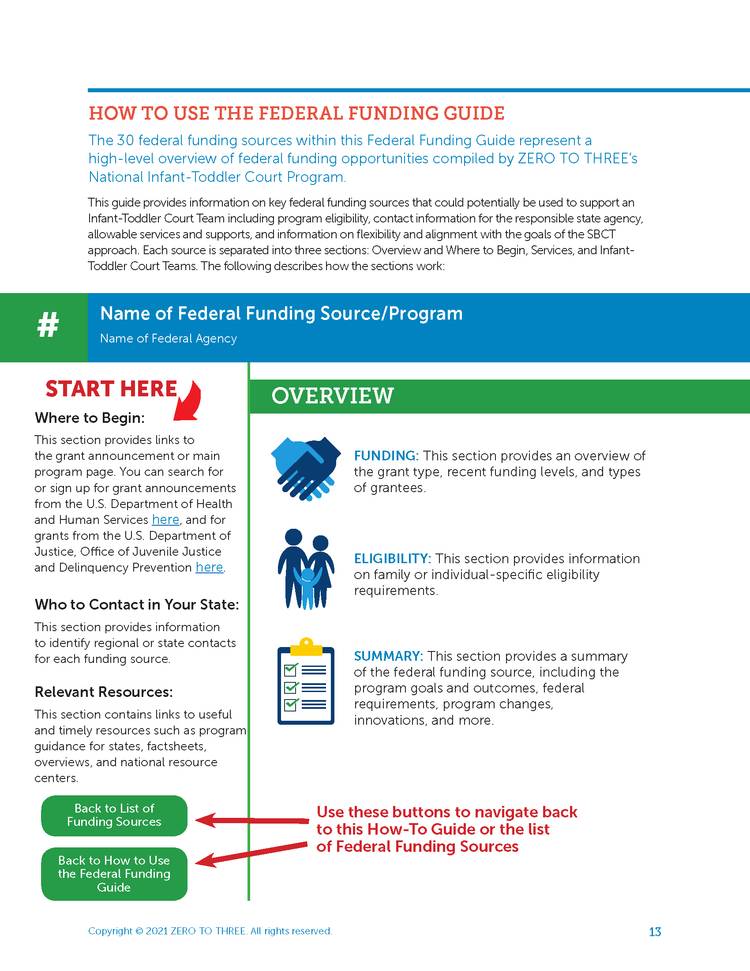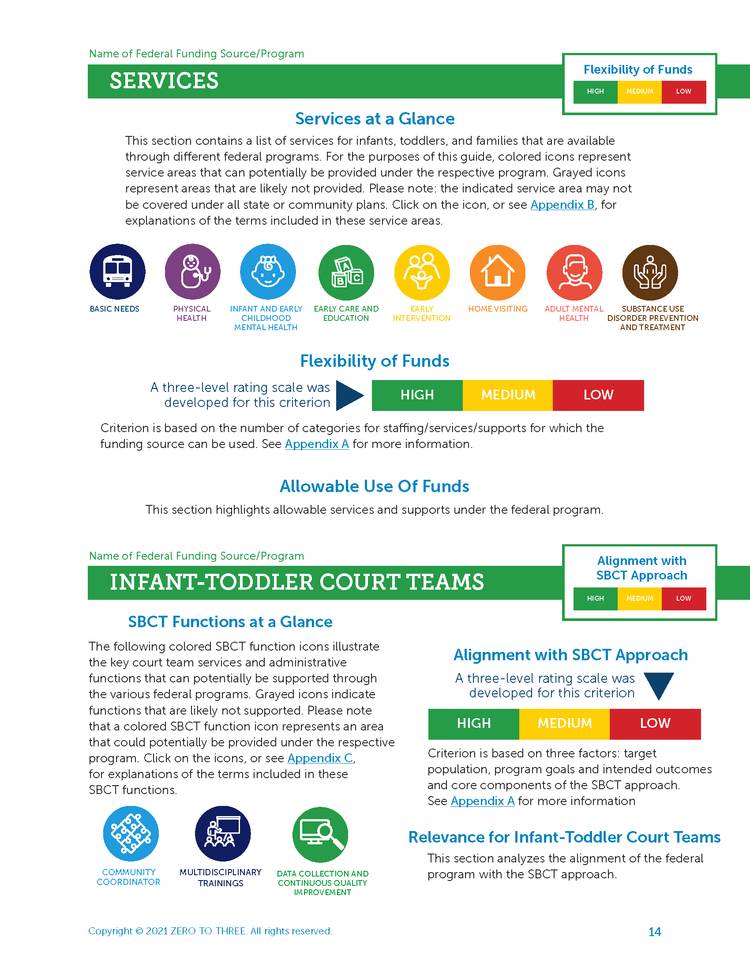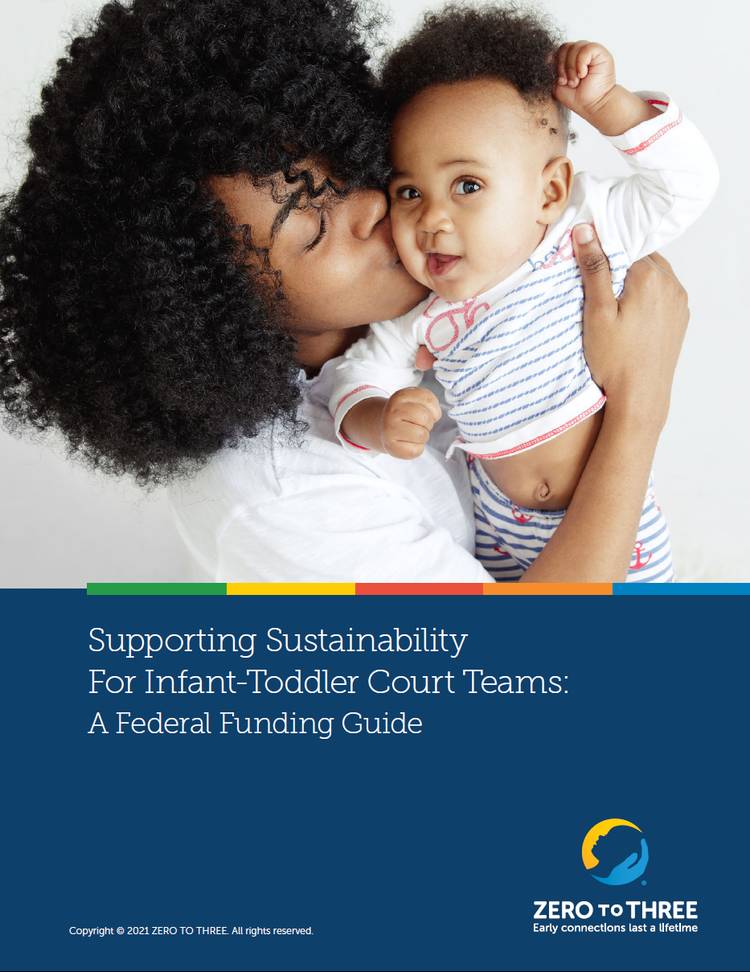It is intended as a starting point for Infant-Toddler Court Teams and their partners, at both the community and the state level, to identify potential federal funding sources that might be accessible for supporting: components of the Safe Babies Court Team™ (SBCT) approach, as well as services for infants, toddlers, and their families.
The Federal Funding Guide can be used for three key purposes:
- Engage with state and local agencies that receive funding to discuss potential areas of alignment to support Infant-Toddler Court Team operations and/or services for families.
- Collaborate with organizations to make service or system changes to increase families’ access to services that are supported through a funding source.
- Apply directly for funding or in collaboration with community or state partners.
The guide provides a high-level overview of 30 federal funding sources that could potentially be used to support:
- Components of the Safe Babies Court Team approach
- Services for infants, toddlers, and their families
See below for an overview of how the sections work:


In this webinar, the Polk County Safe Babies Court Team in Des Moines, Iowa and Arkansas Department of Human Services Division of Child Care & Early Childhood Education share innovative strategies for funding the court team core components and connecting families with critical, strengths-based services.





